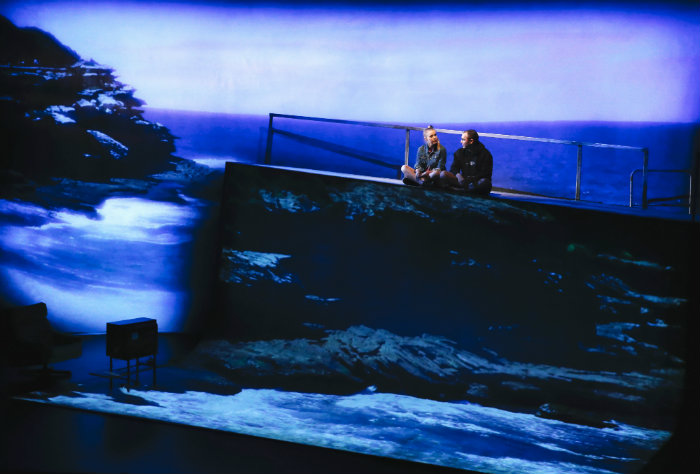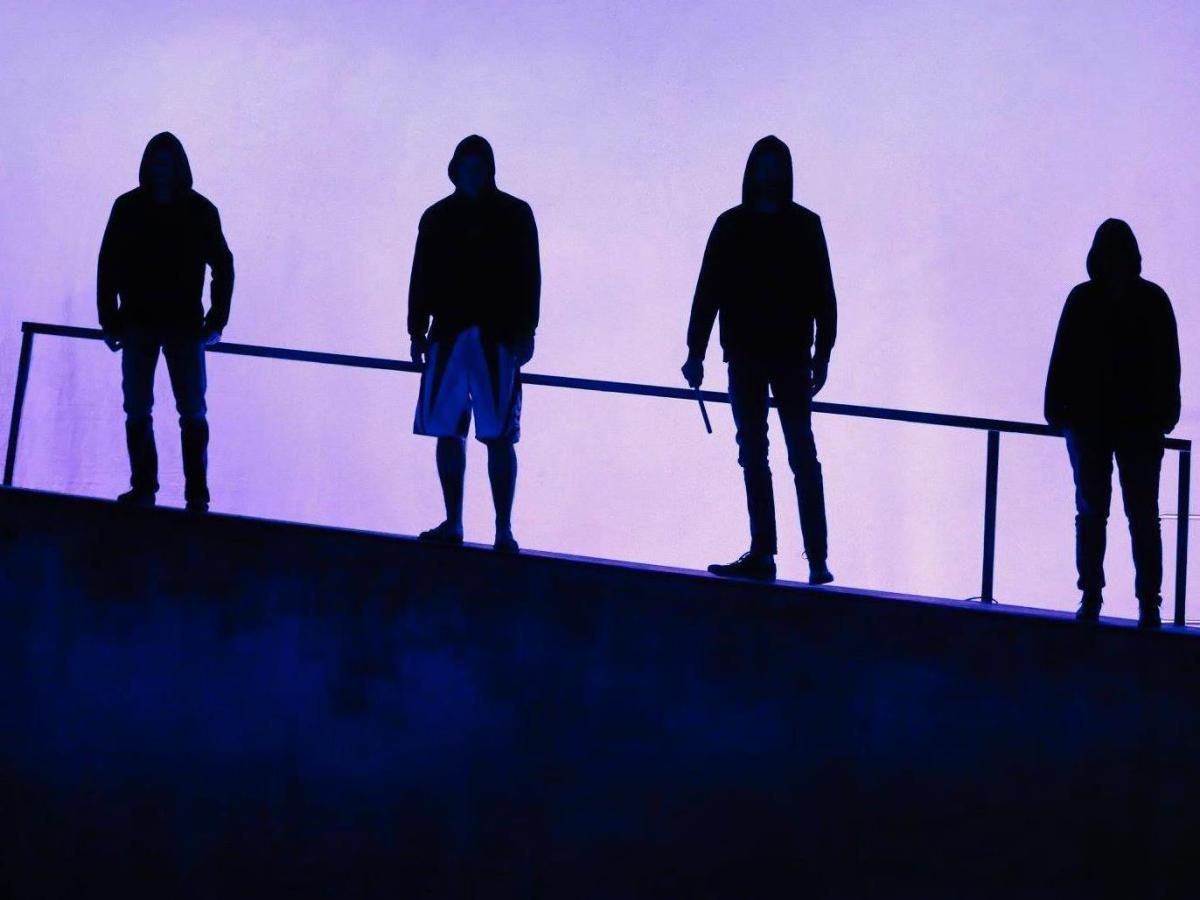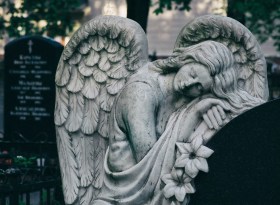Photo credit: Zak Kaczmarek
Poofter bashing. An ugly phrase describing an ugly sport. And a sport it was. Between the late 1970s and the late 1990s, some 80 men in NSW alone died at the hands of teenaged gangs for whom ‘rolling poofs’ – robbing and beating gay and bisexual men, sometimes throwing them off the clifftops of Bondi, Coogee and Tamarama – was a sick form of entertainment.
Of those 80 deaths in NSW, 30 remain unsolved. Their killers walk among us to this day.
Australian playwright Lachlan Philpott’s Lost Boys asks: how do the perpetrators of such violence live with their memories today, in an Australia where attitudes towards homosexuality have, thankfully, changed hugely since the AIDS-fuelled violence and vitriol of the 1980s? And how would the perpetrators’ children react if they learned of their parents’ past actions?
In Lost Boys, across two acts separated by almost 30 years, Philpott sets out to explore these questions.
In 1989, 16 year old Cy Murphy (Jackson Davis) is the leader of a local gang whose members include his submissive younger brother Robert (Lincoln Vickery) and Cy’s dropkick mate, Glen (Josh Anderson). By day the boys surf and cause trouble at school; at night, they viciously assault gay men at a local beat. From one of their bloodied victims Cy steals a bracelet which he gives to his girlfriend Jill (Lucy Heffernen).
In 2017, Cy (now played by Ben Pfeiffer) and Jill (Jane Phegan) are married, with kids of their own: university student Kate (Lucy Heffernen) and teenage son Michael (Davis). The marriage equality survey was only recently held, and old secrets have begun to surface in the slowly gentrifying beachside suburb where they live. The police are once again asking questions about Cy’s involvement with past crimes, and this time, the investigation promises to be far from cursory.
Lost Boys is a dark and confronting work. Philpott does not shy away from hate speech and ugly slurs. Physical violence goes largely unseen, though a brooding score by Daryl Wallis and Leland Kean’s assured direction, which skilfully utilises stillness to counterpoint and emphasise unease, ensures tensions remain heightened throughout. Opening night revealed some nerves and flat spots, but the production will doubtless find its rhythm as the season progresses.

Lucy Heffernan and Jackson Davis in Merrigong’s Lost Boys. Photo credit: Zak Kaczmarek.
Katja Handt’s stark set is dominated by a monolithic construction evoking wave and skate ramp, sand dune and cliff top. This set piece, and the walls and floor of the stage, become screens for Mic Gruchy’s dazzling projections, which incorporate everything from politicians’ sound-bites and familiar landscapes, to a breaching whale – a potent metaphor for secrets surfacing from the deep, to which Philpott and Kean return to several times throughout the production.
Occasionally Gruchy’s projections almost overwhelm the actors, telling rather than showing parts of the story, but for the most part they add effectively to the production, ably assisted by Jasmine Rizk’s moody lighting design.
At two and a half hours (including interval), Philpott’s script is a trifle over-long. One or two scenes, such as an early sequence in which Cy demonstrates the extent of his toxic behaviour by brutalising his visiting cousin, seem superfluous and could easily be cut.
The central character of Cy could also do with a little more development; the origins of his homophobia are never really explored, and his character arc is limited; the world changes around him over the course of the play, but Cy himself does not. Elsewhere the script’s exploration of characters is exemplary, hinting at secrets held by earlier generations of the Murphy family, questioning Cy and Glen’s presence on Sydney’s Oxford Street without ever devolving into cliché, and bringing warmth and tenderness to Michael’s relationship with his best mate, Pete (Vickery).
Philpott also manages to make the violence of the play part of a broader Australian history without such references ever sounding forced. ‘It’s the same stuff that went on all over the country. Just a different take on the same pattern of our history,’ says neighbour Geoff (Anderson again) in the second half of the play. ‘Men did terrible things and nobody wants to talk about it because nobody knows how to face up to it. The whole country works that way.’
Performances are solid to strong, with Jodie Le Vesconte and Jane Phegan particularly impressive. Wollongong native Ben Pfeiffer is a trifle young to play the adult Cy, but brings a clench-handed repression and subdued volatility to the role. Josh Anderson delights across his multiple roles, with his adult Glen an almost pitiable figure, while Jackson Davis imbues the young Cy with an unsettling charisma.
Lost Boys is an ambitious and important work which shines a dramatic light on a shamefully recent aspect of our shared history. Philpott, and Merrigong Theatre Company, are to be congratulated for this production. With judicious trimming and tightening, it absolutely deserves further life on other mainstages around the country.
3 ½ stars ★★★☆
Lost Boys
By Lachlan Philpott
A Merrigong Theatre Company production
Directed by Leland Kean
Designer: Katja Handt
AV Design: Mic Gruchy
Lighting Designer: Jasmine Rizk
Sound Designer: Daryl Wallis
Dramaturg: Jane FitzGerald
Cast: Josh Anderson, Adam Booth, Jackson Davis, Lucy Heffernan, Jodie Le Vesconte, Ben Pfeiffer, Jane Phegan and Lincoln Vickery
Illawarra Performing Arts Centre, Wollongong
23 May – 2 June 2018






